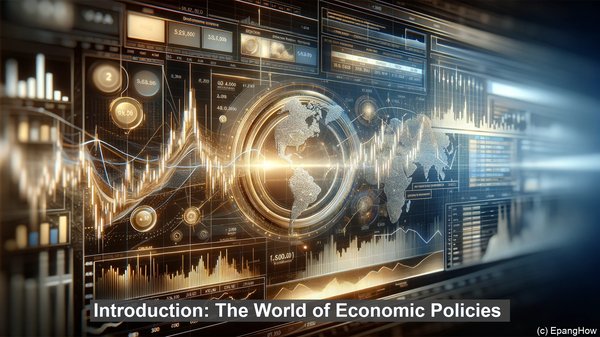Introduction: The World of Economic Policies
Hello, everyone! In the realm of economics, policies play a pivotal role in shaping the direction and dynamics of a nation’s economy. Today, we’ll be exploring two such policies: industrial policy and trade policy. While they may appear interconnected, they serve distinct purposes and have unique implications. Let’s dive in!
Defining Industrial Policy: Fostering Domestic Industries
Industrial policy refers to a set of strategies and actions implemented by governments to promote and develop specific industries within their country. It encompasses measures such as tax incentives, subsidies, and regulations, all aimed at bolstering the growth and competitiveness of domestic industries. The underlying objective is to enhance a nation’s industrial base, create employment opportunities, and stimulate economic growth.

Unpacking Trade Policy: Facilitating International Trade
On the other hand, trade policy revolves around the regulations and agreements that govern a country’s international trade. It encompasses aspects such as tariffs, quotas, and trade agreements. The primary goal of trade policy is to strike a balance between protecting domestic industries and facilitating global trade. It involves considerations of market access, competitiveness, and the overall economic well-being of the nation in the international arena.

The Overlapping Terrain: Industrial Policy and Trade Policy
While industrial policy and trade policy have distinct objectives, there are instances where their paths intersect. For example, a country’s industrial policy may involve the imposition of tariffs on imported goods to protect domestic industries. This, in turn, becomes a facet of its trade policy. Similarly, trade policies can influence the competitiveness and viability of domestic industries, thereby impacting the realm of industrial policy. It’s this interplay that necessitates a nuanced and balanced approach towards both policies.
The Significance: Why Industrial and Trade Policies Matter
Understanding the distinction between industrial policy and trade policy is crucial as both have far-reaching implications. Industrial policy, when effectively implemented, can lead to the growth of strategic industries, technological advancements, and job creation. On the other hand, trade policy shapes a country’s position in the global market, impacting its export potential, import dynamics, and overall economic integration. A well-crafted and coordinated approach to both policies can contribute to a nation’s economic resilience and competitiveness.
